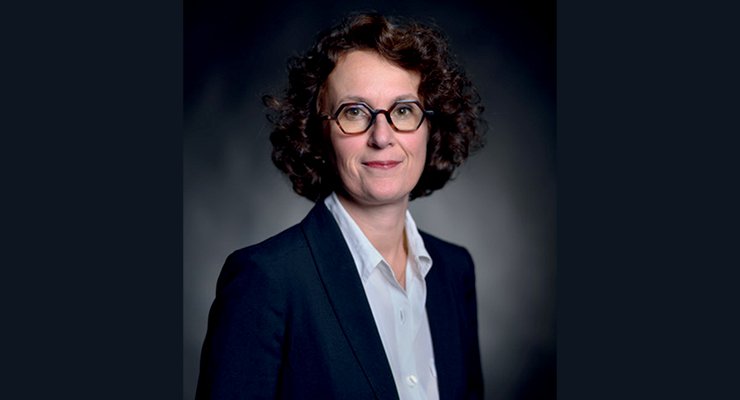Financial support for PhD studies
The registration of a PhD student at UTC is only possible if the ED is assured of its financing, whatever its nature, for the duration of the thesis. Several aid systems support the preparation of a PhD (a grant from the Ministry of Higher Education and Research, or from the Region, a CIFRE thesis (see below), research project on public or private funding, association or foundation, Government grants…) in various contexts: at the university, in a company, with a research organization or abroad.
The PhD contract
Definition
The doctoral PhD contract is a fixed-term contract (CDD) under public law, lasting 3 years, created by the Ministry of Higher Education and Research in 2009. This contract is only possible for public higher education or research establishments, for example: a university (UTC), a public research organization (the CNRS). The employee is termed a “contractual doctoral student”.
The doctoral contract provides all the social guarantees compliant with law and its sets a minimum remuneration.
Prolongation
The doctoral contract may be extended by one year if exceptional circumstances arise in the course of the doctoral student's research activity. In addition, the contract will be extended by right in case of maternity, paternity, or adoption leave, or long-term sick leave.
The doctoral student's activities are to be exclusively devoted to research or to other missions (teaching, scientific and technical information, research promotion, consultancy or expertise missions for companies or public authorities).
Remuneration
This doctoral contract sets a minimum remuneration, indexed to the evolution of civil service salaries. Since July 1, 2010, it amounts to
- 1 684 € 93 gross per month for a research activity alone ;
- 2 024 € 70 gross per month for additional activities.
The sum paid may be increased above the minimum amount. As a public law contract, the doctoral contract is subject to the same principles as all public service contracts, namely the possibility of a two-month, non-renewable trial period.
Other sources of funding
Other institutions, associations and foundations finance training through research.
Contact the National Association of Doctors of Science (ANDES), which lists and updates information on all funding schemes.
Regional Grant
Regional Grant
The Region Hauts-de-France strongly supports research projects developed jointly with the UTC teams as well as with the engineering schools (IPLB formerly ISAB, ESIEE), the CHU, the INRA and INERIS research centres and the transfer centres (CVG, CTCPA).
Important collaborations are also carried out with teams from neighbouring universities (URCA Reims, UTT, Rouen, Lille, Artois, Littoral, Valenciennes), with the recognition for Picardy Department, in 2005, of two world-class competitiveness clusters: "Industries and agro-resources" (in common with Champagne-Ardenne Region) and "i‑Trans" (in common with Nord-Pas-de-Calais Department)
The themes studied in priority
- Agro-resources: this axis aims to irrigate upstream the scientific themes defined for the "Industries and agro-resources" competitiveness cluster.
- Intermodality, energy, transportation: this axis aims to support projects that target integrated systems for applications and large-scale projects that can be included in the "i‑trans" competitiveness cluster.
- Mechanics, materials, clean and safe processes.
- Health, life-related topics.
- Public actions, economic and social systems.
- Education, learning, technologies.
Each axis includes training courses, upstream and downstream research activities and economic development. This research support system is supplemented by so-called “white” projects for teams not involved in these areas.
The overall number of research grants financed by the regional council should increase significantly in the coming years.
Industrial contracts for training via research (CIFRE)
The Industrial contracts for training via research (CIFRE) allow companies torecruit young people with 5 years of higher education whose research and development work will lead to a PhD award.
Since their creation in 1981, the CIFREs have been managed and run by the National Association for Research and Technology (ANRT) ) on behalf of the Ministry of National Education, Higher Education and Research. To date, more than 10 000 doctoral students have benefited from CIFRE doctoral contracts.
The CIFRE agreements bring together 4 partners around a research project that will lead to the defence of a doctoral thesis: a private sector business company, a young graduate, a laboratory and the ANRT.
The company
The company recruits a Master's level graduate on a permanent contract or a 3‑year fixed-term (or non-fixed term) contract to whom it entrusts a strategic research mission for its socio-economic development. The hiring salary cannot be less than €23 484 gross per year. The work will be the subject of the PhD thesis of the doctoral student-cum-employee.
The doctoral student
He/she devotes 100% of his/her time (which can be shared between the company and the academic laboratory) to his/her research work. He/she thereby benefits from a double academic and professional training.
The academic research laboratory
It supervises the work of the employee-doctoral student, and as such the latter is registered with UTC’s Doctoral School to which the said laboratory is attached.
ANRT
It signs an industrial agreement with the company for training through research (CIFRE) on the basis of which a grant is paid to the company. In 2012, the annual grant is increased to €14 000. The research tax credit (CIR)) is added to this grant.
Contact and documentation
Plaquette de l'ED
Catalogue de l'offre de la formation doctorale
Guide de l'étudiant



